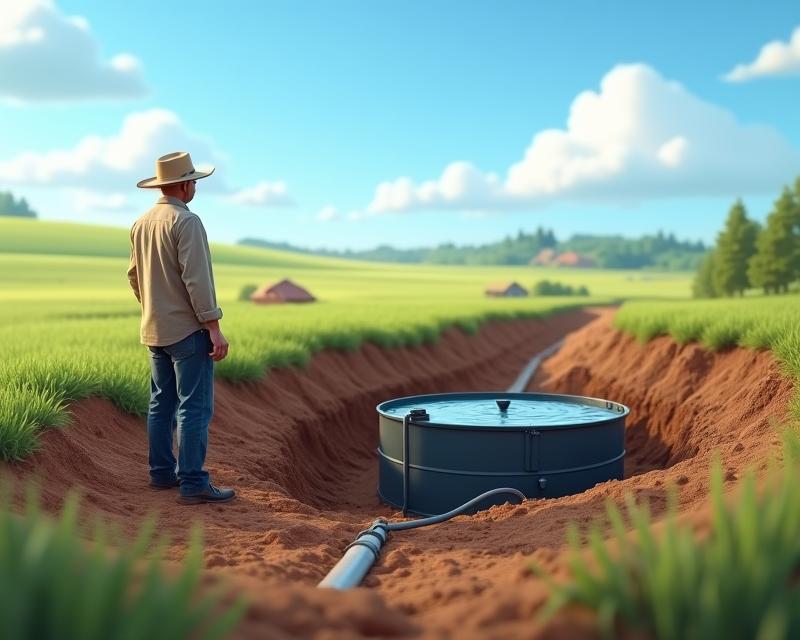Underground Water Tanks: Farm Water Storage
Publish in Sustainable Farming el 06/07/2025 17:57
Underground Water Tanks: A Smart Solution for Farm Water Storage
Water is the lifeblood of any farm, whether you're growing crops, raising livestock, or simply maintaining a healthy landscape. Reliable water access is crucial for success, but consistent rainfall isn't always a guarantee. That's where water storage solutions come in, and underground water tanks are gaining popularity for their numerous benefits. Let's dive into why underground tanks are a great option for farmers and how they work.

Why Choose Underground Water Tanks?
Unlike above-ground tanks, underground water tanks offer several key advantages. Firstly, they keep water cooler. This is a huge plus because cooler water reduces algae growth and minimizes the risk of bacterial contamination. Secondly, they're protected from freezing temperatures, which can damage above-ground tanks and disrupt water supply. Thirdly, underground tanks save valuable space on your farm – maximizing land for crops or livestock. Finally, they offer a more aesthetically pleasing solution, blending seamlessly with the landscape.
Benefits for Your Farm
Investing in an underground water tank can significantly improve your farm's efficiency and resilience. A consistent water supply ensures your crops receive adequate hydration, leading to higher yields and better quality produce. For livestock, reliable water access is essential for their health and well-being. You can also use stored water for irrigation, cleaning, and other farm operations, reducing your reliance on municipal water sources. Furthermore, having a reserve allows you to weather droughts or unexpected water shortages with greater confidence. Consider the long-term cost savings of reduced water bills and increased crop yields!
Installation Considerations
While underground tanks offer many advantages, proper installation is key. It's generally recommended to have a professional install your tank to ensure it's done correctly and meets local regulations. The installation process typically involves excavating a hole, placing the tank, and connecting it to your water source. Proper backfilling and compaction are crucial for stability. Consider factors like soil type, water table depth, and proximity to existing structures when planning your installation. Regular maintenance, including periodic inspections and cleaning, will ensure your tank continues to function optimally for years to come.
Choosing the right size tank depends on your farm's water needs. A water audit can help you determine your average water consumption and plan accordingly. Don't hesitate to consult with a water storage specialist to get personalized recommendations for your farm. With careful planning and proper installation, an underground water tank can be a valuable asset to your farm, providing a reliable and sustainable water source for years to come.





